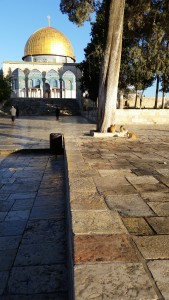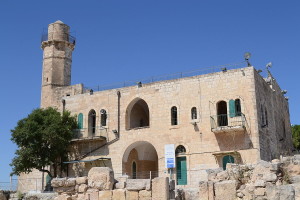
Last year when I was in Israel, I fell in love with Israeli cats. My wife is a cat fancier, and wasn’t traveling with me, so I thought I would take pictures of every stray cat that crossed my path. I took a lot of pictures. There are a lot of stray cats in Israel and the West Bank. They were in every city we visited, particularly in the alleyways of shuks and old makets; on the beach in Jaffa, crossing busy thoroughfares in Tel Aviv, hanging out near butcher shops in Akko and Bethlehem. When we visited the Temple Mount, there were a group of cats, sublimely and insouciantly indifferent to the hubbub and tension around them, sunning themselves in front of the Dome of the Rock. In Hebron, the IDF didn’t seem to care that cats were passing from the Palestinian to Israeli-controlled parts of the city. They were always underfoot, and generally tolerated.
